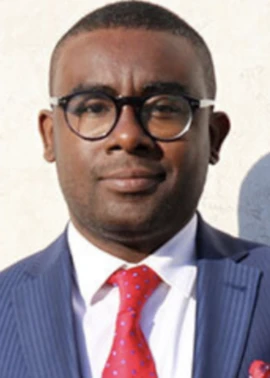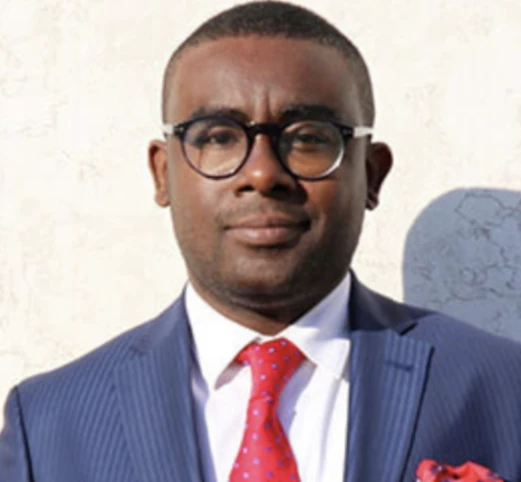The digital world has unlocked an immense wealth of opportunities for the African continent, that is without question. But as this world continues to expand, it has created space for misinformation, violent extremism and abuse to thrive. In building a more connected, peaceful and collaborative future, young people must understand the complexities of these matters, and take actions to address them.
On the 22nd of October, One Young World in collaboration with the African Union Office of the Youth Envoy hosted an Intergenerational Dialogue virtual event titled ‘ The Youth Digital Divide, Misinformation, Violent Extremism & Safety’. We heard from leaders who detailed the implications of these threats, and the solutions that can ensure the digital arena is a place to unify, not divide, people.
This is Andréa Ngombet's contribution.
The lexical association of Youth, with digital, violent extremism and disinformation has become commonplace in the global discussion. It is a variant of the same old accusation cast at young people, who are deemed intrinsically prone to extremism and violence. I am going to try to show you through examples that although the responsibility of the “medium” can be legitimately questioned, it is in reality always a deficit of both rule of law and education in the critical mind that is at issue.
Modern African Youth extremist movements emerged in the great lakes and central Africa region along with the anti-colonial struggle in late 1960.
For instance, Bana Bagando [children of the crocodile], violent youth excrescence of UDDIA, the first Congolese presidential party, initiated political and state violence in January 59 by deporting and exterminating thousands of “Matwanist” in political and religion-based repression. No social media at the time but rumours spread by Radio station. Radio was amplifying a hatred phenomenon which would have happened anyway but at a rather slower pace.
In the mid 60, the first prominent youth violent political movement was the Congolese JMNR - Youth of the national movement of the revolution, an armed militia responsible of the murder of many opponents, such as the attorney Joseph Pouabou in 1965. They add to the radio, the television to spread their hate speech against the enemy of the so-called revolution.
The Congolese revolutionary model is the cradle of that kind of African youth extremist movement. We must forget the model of spontaneous violent youth extremism. It often materializes an ideological manipulation by organized political groups. These groups seek to achieve a mass effect - terror - the confiscation of public space by undemocratic means.
To do so, the beliefs and fears of the social body are exploited. It is the classic author of Crowd Psychology, Gustave le Bon, who in the 19th century in Europe had systematized this empirical knowledge. Today, computer-assisted exploitation of the cognitive biases of the human brain has come to supplement an already bloated arsenal of the “manufacture of consent” as Noam Chomsky call it.
In Africa, the main exploited theme is the “fight against imperialism” as the continuity of the anti-colonial struggle. It actually means to drum out any western influence in a dangerous seek for purity and authenticity. According to this model, Africa has been perverted by “western values” such as democracy, human rights, capitalism and the youth is instrumentalized by political parties to hate such values. The fight against imperialism first targets the party moderate wing, and then the opponents who are suspected of collusion with western governments, CIA or any ancient colonial power. All this is very similar to well known infamous genocidal technics.
With digital technology, it is the scale of propagation of these ideologies that has changed. These technologies have turned the old propaganda agitation method into a precision weapon. Where yesterday's demonstrations were general and random, the digital tool allows precise targeting and the constitution of “echo chamber” which locks up the individual and self-sustains ideological delirium. The algorithm “suggests” “similar profiles”. The delirium thus becomes collective, it is reinforced until generating the passage to the sacrificial act. This act, live-streamed on the same platform that radicalized the perpetrator serves to further recruit radical zealots by acting on the two fundamental needs of recognition and belonging.
Authoritarian states more than democracies have well understood the stakes and the power of such tools in the making of political radicalism. Actors like the Russian Yevgeny Prighozin theorized, financed and implemented with some success “content farms” and “troll factories”. In the jargon, it is about igniting the fuse, ie initiating the polemics by feeding pre-existing prejudices in the social body. The production of fake news - post-truths - targeted at young Africans by Prighozin company has certainly changed the course of elections in Madagascar. On June 10, Facebook deactivated a hundred fake accounts of the Ureputation company based in Tunisia and involved in electoral manipulation for the benefit of dictatorial regimes.
We can now speak of industrial information warfare. “Robots” like pages to simulate popularity which deceives the algorithm. The exponential power of social media then produces crowd movements in real life. This is what happened on April 6 when young people following a Facebook and WhatsApp rumour on the covid vaccine, ransacked a screening centre in Abidjan. In this case, too, the signature of state power (Russia or China) appears.
Let's recap: There is no intrinsic extremism of youth. The space for disinformation and radicalization on the media (from the good old newspaper to the social media platform) is created, maintained and fed by actors (States, pressure groups) with anti-democratic agendas. So there is never a spontaneous movement of violent extremism online. If in the democratic model the fabrication of consent is done by an illuminating opinion by presenting the facts, motivations and objectives, the totalitarian process proceeds by the exaltation of prejudice and subjective beliefs over facts. It constitutes a genuine “emotional hacking”.
Whether the tool is radio, like the infamous Radio Milles Collines that propelled the Tutsi genocide or the Facebook pages of Tunisian society UReputation, it always boils down to a deficit in critical thinking education and legal frameworks requiring transparency of the PR industry. I would even dare say that it is the universal scientific method that is lacking. Initiatives like Deutsche Welle Academy, the France 24 observers or any Fact-checking programs are beneficial.
However, they can never have the exponential power of social media platforms. This is why platforms should no longer be just Tech for Good but create the space for a Tech for Democracy movement. The production of false information will not be exhausted by the deletion of the contents but when there is no longer any use to propagate them. The first measures on Whatapps to limit the number of transfers of a message or Retweet on Twitter go in the right direction but only treat the tools where it is the user who must be trained.
Our take-home proposal involves the NGO Internet Without Borders to bring the main major media and the main social media platforms to the table to launch a free, interactive and certifying educational program that teaches critical thinking, and how to identify disinformation (techniques, cognitive biases, the rumour mechanism, etc.). The program will target in priority the teachers who will be like referents to teach the good use of social media and how to defunct misinformation.
Author

